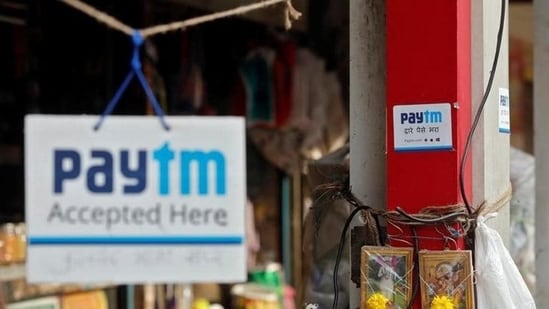India’s leading payments and financial services company Paytm has announced Q4 FY2023 results, where it has surpassed analysts’ estimates and reported robust growth in the Q4FY23 and FY23 results. In Q4FY23, the company’s revenue surged by 51 per cent YoY to reach ₹2,334 crore, while the full-year revenue increased by 61 per cent YoY to ₹7,990 crore.
The company already achieved its operating profitability milestone in Q3, ahead of its September 2024 guidance, due to the increased pace of monetization, better cost management, and higher operating leverage. In Q4, Paytm’s EBITDA before ESOP costs surged to ₹234 crore, a significant jump from the previous fiscal’s Q4 figure of (Rs368 crore).
Paytm beat the estimates of analysts such as Bank of America, Goldman Sachs, Morgan Stanley, Citi, and Macquarie that forecast Q4 revenues of ₹2,231 crore, ₹2,296 crore, ₹2,189 crore, ₹2,274 crore, and ₹2,319 crore, respectively.
Paytm’s payments revenue grew by 41 per cent YoY to ₹1,467 crore in Q4FY23, with payment revenue growing 28 per cent YoY after excluding prior quarters’ UPI incentives. The company’s payment profitability improved with the Q4FY23 net payment margin expanding 158 per cent YoY to reach ₹687 crore. In FY23, the net payments margin grew by an impressive 2.9X to ₹1,970 crore, demonstrating the profitability of the payment business, despite the higher share of UPI.
ALSO READ| Paytm wins banking regulator extension for payment aggregator license: Report
Paytm significantly increased its loan distribution business with revenue from financial services and others growing 183 per cent YoY to ₹475 Cr in Q4 FY 2023 and by 252 per cent in FY 2023 to ₹1,540 crore. This was largely on account of 364 per cent increase in the value of loans disbursed through our platform.
The company continues to monetize Paytm app traffic in its Commerce and Cloud segment by providing marketing services to its merchants. In Q4 FY 2023, Paytm’s Commerce & Cloud revenue grew by 23 per cent YoY to ₹392 crore. In FY 2023, Commerce and Cloud revenue grew by 38 per cent to ₹1,520 crore.
The company further improved its payment profitability with Q4FY23 net payment margin expanding 158 per cent YoY to ₹687 crore while the net payments margin was ₹554 crore, up 107 per cent YoY after excluding previous quarters’ UPI incentive. In FY23, the company’s net payments margin grew 2.9X to ₹1,970 Cr, demonstrating profitability of payment business despite higher share of UPI.
Driven by continued improvement in payments profitability and increasing mix of high margin businesses like credit distribution, Paytm’s contribution margin in Q4 FY 2023 stood at 52 per cent, improving from 35 per cent in Q4 FY 2022. Contribution profit improved from 30 per cent in FY22 to 49 per cent in FY23 of revenue to ₹3,900 crore, up 160 per cent YoY. Excluding prior quarters’ UPI incentives, like-for-like margin increased to 52 per cent from 35 per cent in Q4FY22.
Paytm’s loan distribution business, in partnership with marquee lenders, continues to scale. In Q4FY23, total number of loans grew to 1.2 crore (up 82 per cent YoY) while the total value of loans amounted to ₹12,554 crore, growth of 253 per cent YoY, were disbursed through Paytm across its three product offerings — Paytm Postpaid, Personal Loans, and Merchant Loans. As of March 2023, 95 lakh borrowers have taken a loan through the platform. For FY23, total number of loans disbursed grew 163 per cent YoY to 4 crore loans amounting to ₹35,378 Cr, surging 357 per cent YoY.
As adoption of digital payments for consumers and merchants in India continues, user engagement on the platform continues to grow with average Monthly Transacting Users (MTU) for Q4FY23 increasing by 27 per cent YoY to 9.0 crore. Paytm’s Gross Merchandise Value (GMV) increased 40 per cent YoY at ₹3.62 lakh crore in Q4 FY 2023. With a focus on creating additional payment monetisation, the company’s subscription revenues continue to grow with 68 lakh merchants paying for device subscriptions as of March 2023, more than doubling its growth YoY from 29 Lakh as of March 2022.
